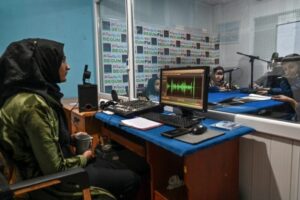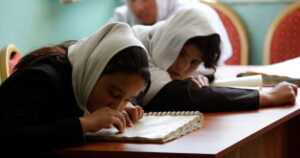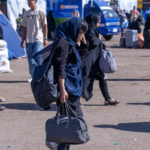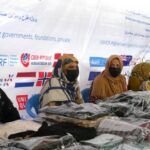Mohammad Al-Issa, Secretary-General of the Organization of Islamic Cooperation, implicitly referred to the ban on education for girls in Afghanistan during a meeting of the Organization of Islamic Cooperation in Pakistan, stating that there is no prohibition on educating girls in Islam.
In this meeting, Mr. Al-Issa remarked that denying the right to education for girls and women—whether in general or partially—and attributing it to Islam and Sharia is incorrect.
He emphasized, “Every individual or organization, whether governmental or private, must exercise utmost caution regarding this issue, as the unanimous agreement among scholars of the Ummah on women’s educational rights should not be misrepresented as a religious issue.”
He stated that Islam “categorically” rejects any form of deprivation from education for women, whether partial or complete, at any age or level.
Mohammad Al-Issa clarified during the meeting: “There is no greater violation than injustice.”
The Secretary-General of the Organization of Islamic Cooperation implied that the current government is responsible for the ban on education for girls and women, adding, “A cautious individual should not absolve themselves of responsibility by hastily prohibiting or rejecting matters.”
He noted that anyone who imposes strict interpretations on “the breadth and ease of Islamic Sharia” falls into extreme interpretations, such as banning medical services provided by men to women and other similar issues.
In the context of the meeting regarding girls’ education, the Secretary-General stated: “The declaration from this meeting will highlight the strong and effective commitment of Islamic countries and Muslim scholars towards girls’ education.”
OIC Meeting in Islamabad
The Organization of Islamic Cooperation meeting focused on girls’ education in Muslim countries, especially in Afghanistan, has been held since yesterday (Saturday, January 12) in Islamabad, the capital of Pakistan.
This meeting, which is set to conclude today (Sunday), includes participation from over 20 foreign ministers from Islamic countries, scholars from the Islamic world, and representatives from global Islamic organizations.
Ban on Girls’ Education in Afghanistan
This comes at a time when the current government has closed the doors of schools above the sixth grade and universities to girls after taking control of the country. Although this action was initially referred to as “temporary,” three years later, not only has there been no change in this approach, but it has also intensified.
In the latest instance, the current government has also banned girls and women from studying in medical educational institutions.
Additionally, women and girls have been prohibited from going to parks, baths, beauty salons, traveling without a male guardian, speaking loudly, and working.
These restrictions and prohibitions have sparked widespread global reactions.













